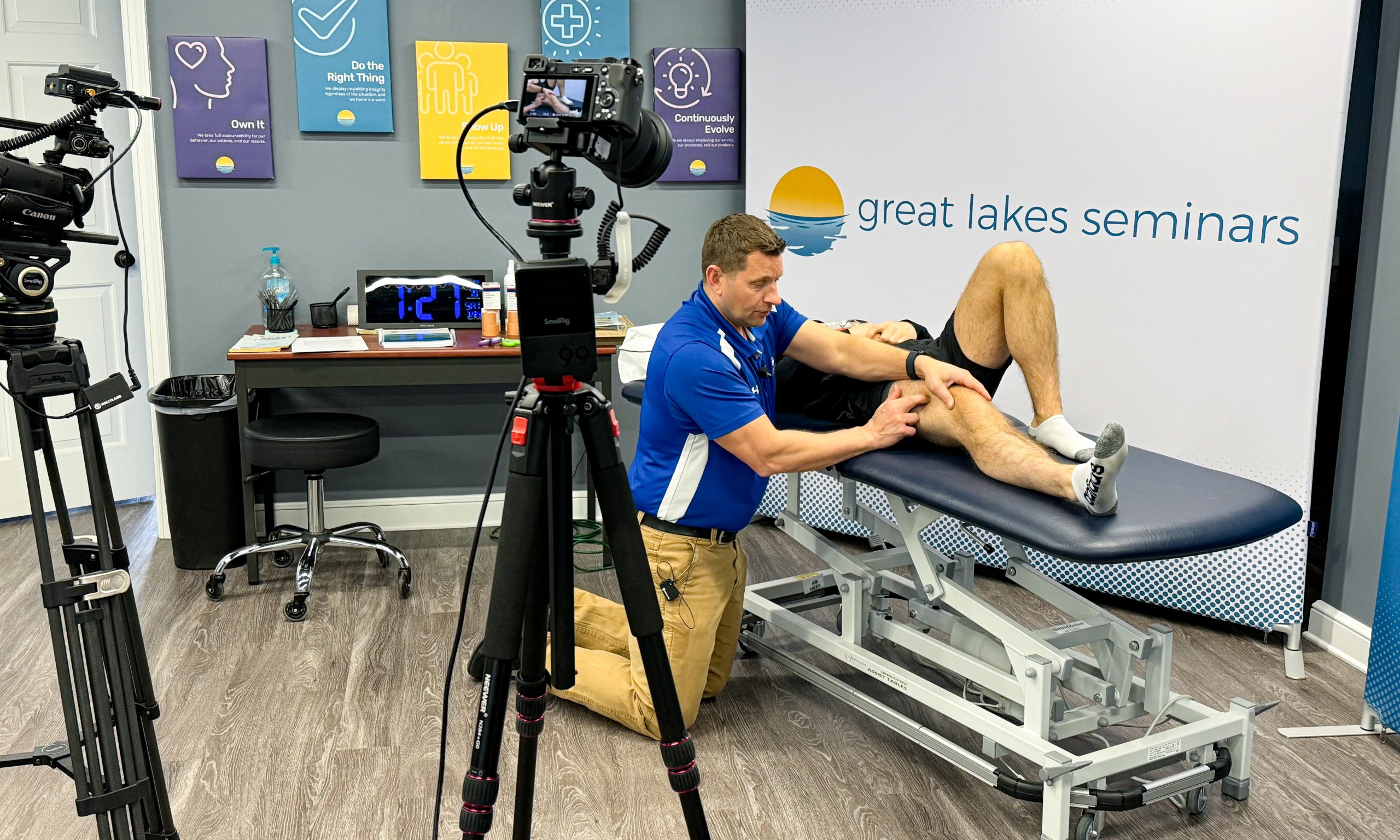4 Tips for Successfully Managing Your Patient Load

Regardless of your specific work setting, efficient patient load management is crucial for providing quality care and avoiding stress at work. By effectively managing your patient load, you can ensure that each patient receives the attention and care they deserve and that you can avoid taking work home (or at least minimize it).
See below for the 4 tips to help you successfully manage your patient load.
Tip #1: Prioritize Communication and Build Strong Relationships with Patients
Investing in building patient relationships not only enhances the therapeutic process but also fosters a sense of collaboration and partnership. When patients feel heard, respected, and valued, they are more likely to actively participate in their treatment plan and achieve better outcomes.
Better outcomes provide a sense of satisfaction and purpose for you, leading to greater engagement and productivity at work. A strong relationship also allows your patient to be seen, as a person, not just their dysfunction. This partnership is both rewarding and provides energy for you to continue to provide your best care.
Remember, every interaction with a patient is an opportunity to strengthen the therapeutic alliance. By prioritizing communication and nurturing positive relationships with your patients, you can create a supportive environment that promotes healing and overall well-being.
Tip #2: Implement Effective Time Management Strategies to Optimize Your Schedule
Implementing effective time management strategies is crucial for therapists to optimize their patient load and provide the best care for their patients. Managing your time will allow you to give better care. You can be present with each patient instead of being rushed throughout your day.
It is often small things that build into effective time management. Showing up a few minutes early allows you to be fully present and prepared for your first patient. Finishing lunch a little early to complete any lingering morning notes. Spending a little time after your last patient to ensure you complete your notes in the moment instead of having to think through everything again later in the evening or the following day.
An obvious, yet underutilized, method of being effective with your time is to focus on documentation. That is if the company you work for provides any documentation slots on your schedule, or you have a cancellation. We all love to talk with our colleagues when we have free time, but dedicating any openings in your schedule to completing your notes is a sure way to leave work with little to no remaining documentation.
Remember, effective time management is not just about being busy – it’s about being productive on the things that matter to help you best manage your patient load.
Tip #3: Prioritize Self-Care and Avoid Burnout by Balancing Workload with Personal Well-being
In the demanding field of PT, it’s crucial to practice self-care to prevent burnout and maintain a healthy work-life balance. Just as you care for your patients, remember to care for yourself as well.
It’s important to find a balance between your workload and personal well-being. Make time for activities that bring you joy and relaxation. The time before and after work is important. Creating your ideal morning routine, whatever that is for YOU, will help put you in a positive mindset before beginning work. Doing something to disengage from work is helpful as well so you are fully present when you get home.
As a therapist, you dedicate yourself to helping others heal and recover. Remember to turn this same lens on yourself. By prioritizing self-care and finding that balance between work and personal life, you’ll be better equipped to provide the best care for your patients while also nurturing your own well-being. Your health matters too!
Tip #4: Continuously Seek Professional Development Opportunities to Enhance Your Skills
Continuously developing your skills makes you a better clinician. Better clinicians get better results and get them more quickly, essentially becoming more efficient with patient care. When you are more efficient, it allows you more time to complete your documentation.
It’s essential for therapists to invest in their own learning and skill development to ensure they are delivering the highest standard of care. The “efficiency of care” that comes with it has the biggest impact on your ability to handle your patient load. By actively pursuing professional development opportunities, therapists can improve their efficiency, effectiveness, and overall job satisfaction.
Remember, growth is a continuous journey – embrace every opportunity to learn and develop professionally. Your dedication to self-improvement will not only make you a better therapist but also a less stressed one.
Questions? Check out these FAQs!
Efficient patient load management ensures each patient receives quality care while reducing stress, avoiding burnout, and keeping work-life balance in check.
Prioritize listening, build strong therapeutic relationships, and foster collaboration. Engaged patients participate more fully in treatment, improving outcomes.
Arrive early, finish notes promptly, use free slots for documentation, and focus on productivity rather than just staying busy. Efficient scheduling allows you to give patients your full attention.
Prioritize self-care, maintain a healthy work-life balance, create routines that energize you, and disengage from work when off-duty to stay fully present both at work and home.
Continuous learning improves your clinical skills and efficiency, allowing you to treat patients more effectively, reduce time spent per case, and manage your schedule more smoothly.
Yes. Simple habits like using breaks to complete documentation, preparing for your first patient, and finishing tasks immediately can significantly reduce stress and improve patient care.
Combine strong communication, efficient time management, self-care, and ongoing professional growth to provide the best patient care while maintaining your well-being.
Share this article:


